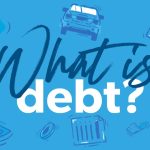Navigating the world of personal finance can often feel like an overwhelming journey, especially for those just beginning to take control of their financial destiny. But fear not, for budgeting is the compass that will guide you through. It’s the foundational step in understanding your financial health, making informed decisions, and setting the stage for a secure and healthy financial future.
Understanding the Basics of Budgeting
At its core, budgeting is about balance. It’s the process of mapping out how much money you have coming in, how those funds are spent, and planning for both short-term expenses and long-term goals. The goal is to ensure you’re not spending more than you’re earning, and ideally, saving a portion for future needs.
Budgeting: The First Step
The first step in budgeting effectively is to gather a clear picture of your financial situation. This means tracking your income, understanding your fixed expenses (those regular monthly bills like rent, utilities, and subscriptions), and identifying variable expenses (the costs that can fluctuate, like groceries, entertainment, and personal spending). Knowledge is power, and in the realm of personal finance, this couldn’t be more true. Innovative tools and apps can help streamline this process, making it easier to visualize where your money is going.
Setting Goals and Making a Plan
With a clear understanding of your financial landscape, the next step is to set realistic and achievable goals. Whether it’s saving for a rainy day fund, paying off debt, or planning for a major purchase, having specific targets in mind gives your budget purpose and direction. Remember, your financial goals should be SMART: Specific, Measurable, Achievable, Relevant, and Time-bound. This framework not only helps in setting your financial goals but also in achieving them.
Creating a budget that works for you is a personal journey, and there is no one-size-fits-all approach. Start by categorizing your expenses and allocating funds according to your priorities and goals. For many, the 50/30/20 rule offers a simple yet effective framework: 50% of your income goes to needs, 30% to wants, and 20% to savings and debt repayment. However, feel free to adjust these percentages based on your personal circumstances and objectives.
Embracing Technology and Staying Flexible
In today’s digital age, numerous tools and apps can help you track spending, set alerts for bills, and even automate savings. Leveraging technology not only simplifies the budgeting process but also ensures you stay on top of your finances with minimal effort. Remember, the most effective budget is one that you can stick to consistently. Therefore, choosing a budgeting tool that aligns with your lifestyle and preferences is key.
Flexibility is another crucial aspect of successful budgeting. Life is unpredictable, and your budget should be adaptable enough to accommodate unexpected changes. Regularly reviewing and adjusting your budget ensures it remains relevant and effective, allowing you to stay on track toward your financial goals.
The Path Forward
Embarking on a budgeting journey is a sign of taking charge of your financial well-being. It’s a step toward not just financial stability, but also toward achieving your dreams and aspirations. Remember, every journey begins with a single step, and in the realm of personal finance, that step is a well-planned budget.
Remember, with each dollar tracked and saved, you’re paving the way to a more secure and fulfilling financial future. Trust in your ability to make informed decisions, lean on the innovative tools at your disposal, and remain flexible and resilient in the face of financial challenges. With these principles in mind, you’re not just budgeting for today, but investing in a brighter, more prosperous tomorrow.
Budgeting for beginners doesn’t have to be a daunting task. With the right approach, tools, and mindset, anyone can master the art of personal finance. Remember, it’s not just about numbers; it’s about setting the foundation for a life that aligns with your values and goals. So, where do you start? Right here, right now, with the first step toward your financial empowerment.
Using CreditU For Budgeting
Budgeting for the first time can be intimidating for the personal finance newbie, but in today’s modern world there are plenty of resources available like CreditU. So what is CreditU? CreditU is a personal finance app created by American Consumer Credit Counseling (ACCC). ACCC saw a need to further assist people with financial literacy and personal finance so they created an app that can help with both. Features of CreditU include budgeting, tracking expenses, creating and tracking financial goals, financial education tailored to your specific financial situation, access to debt management tools, and view credit score. After going through CreditU’s user-friendly onboarding, learn your net worth, debt-to-income ratio, and credit utilization. Download CreditU today!
If you’re struggling to pay off debt, ACCC can help. Schedule a free credit counseling session with us today.
Read the full article here
















